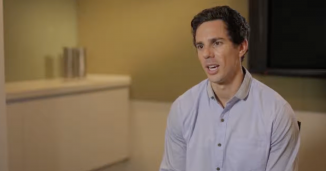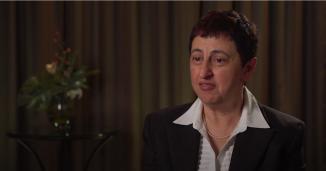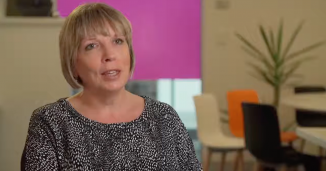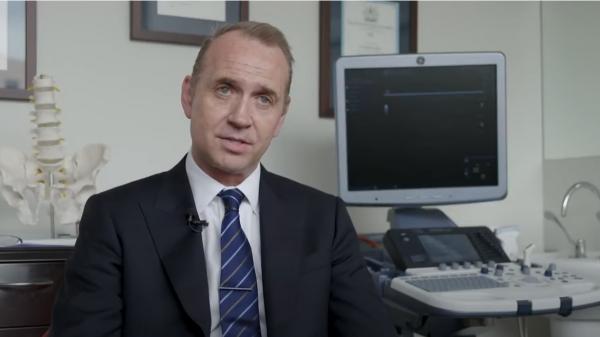Treating axSpA
View transcript
Linda Bradbury
Nurse Practitioner, Rheumatology
I think if the back pain is continuing and you’re doing everything that the GP has suggested and it’s really not getting any better, then I think at that point then a referral to a specialist is warranted. The specialist can then do perhaps some further investigations like an MRI scan that will hopefully be able to give you the diagnosis.
Dr. Marina Kang
General Practitioner
Ankylosing spondylitis I again like to refer to rheumatologist because that’s a little bit more diagnostically difficult so someone with stiffness in the back, there’s no one particular blood test or image that we can do that would diagnose that. Whereas the rheumatologist has more experience and has more pharmacological tools available to them to be able to treat that patient the most effective way.
Dr. Mona Marabani
Rheumatologist
Ankylosing spondylitis treatment is relatively simple really. The mainstay of treatment at the start is anti-inflammatory medication and exercise. Exercise is absolutely critical in this disease to maintain the stability, to maintain the posture and positon of your spine, exercise is vital.
Dr. Irwin Lim
Rheumatologist
It’s very important for patients to keep active to improve their spinal mobility and to reduce the stiffness. For most patients this combination seems to work but there will be a number of patients who prove quite resistant to this treatment. In those cases we really need to control the inflammation in a different way and this usually requires the use of biologic disease-modifying agents.
Dr. Mona Marabani
Rheumatologist
With a combination of exercise and anti-inflammatory therapy over a period of time we would hope that we can control people’s disease and if we can’t then we can move almost directly then at that point on to biological therapy which has been a fantastic advance in the treatment of this disease.












